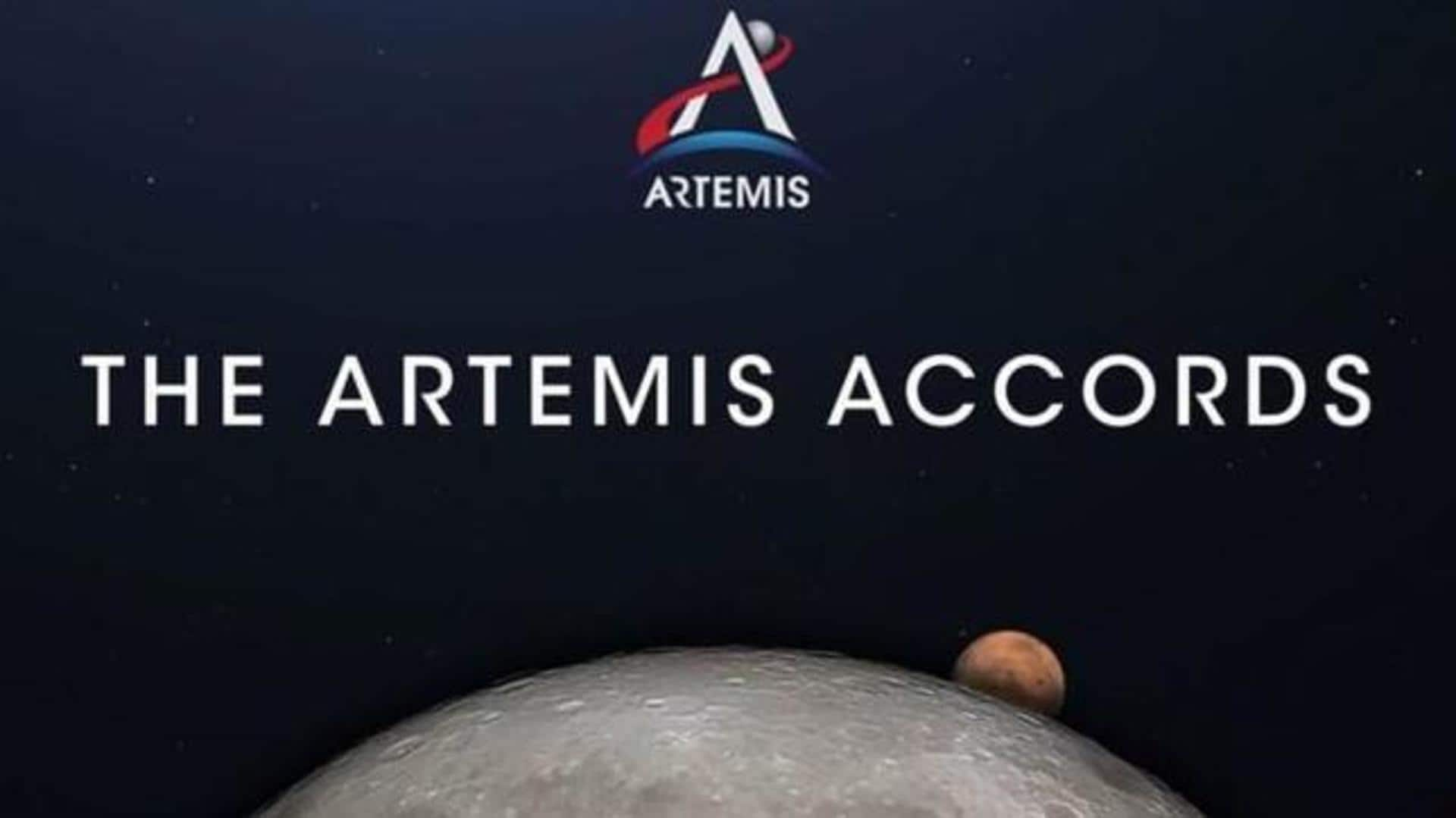
NASA wants India to join Artemis Accords: Why it's significant
What's the story
NASA is keen on getting India to sign up for the Artemis Accords, a framework that lays down common principles and guidelines to be followed by all collaborating nations for safe space exploration. These accords, which were established in 2020, ultimately aim to "create a safe and transparent environment which facilitates exploration, science, and commercial activities" for all.
Context
Why does this story matter?
NASA has ambitious plans under the Artemis program, which include landing the first woman astronaut and the first person of color on the Moon. While the space agency is leading the program, collaborations with other nations and companies will be a key factor for its success. Signing up for the Artemis Accords will be beneficial for India's space exploration plans as well.
Nations
India will be 26th nation to sign Artemis Accords
The Artemis Accords were established by US-backed NASA along with other founding member nations, namely Australia, Canada, Italy, Japan, Luxembourg, UAE, and the UK. India will become the 26th nation to sign up for Artemis Accords. As of May 2023, 25 countries have signed up for the accords and NASA expects more nations to collaborate in the future.
Detail
What do the Artemis Accords entail?
The Artemis Accords work on about 10 main principles. These guidelines include carrying out peaceful space exploration, interoperability within the existing infrastructure to promote safety and sustainability, registration of space objects, releasing scientific data for public use, preserving the heritage of outer space, ensuring transparency to avoid confusion and conflict, and providing emergency aid to astronauts in need.
Scope
Artemis Accords specify guidelines for "civil space activities"
The common guidelines specified in the Artemis Accords will ensure "civil space activities." The guidelines include space activities conducted on the Moon, Mars, comets, and asteroids, including their surfaces and subsurfaces, and the orbit of the Moon or Mars, according to the official statement by NASA. The accords also cover the Lagrangian points for the Earth-Moon system and regions lying between the celestial bodies.
Orbital debris
Artemis Accords also involve the "mitigation of orbital debris"
The signatories of the Artemis Accords must also work toward "mitigation of orbital debris," which must be planned during the mission's planning phase itself. This includes "safe, timely, and efficient" disposal of spacecraft at the end of their missions or when needed. The collaborating nations must also agree to cut down on the production of new long-lived or harmful debris.